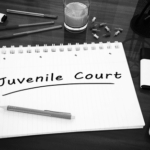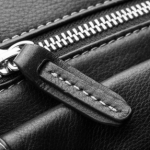Part Two of a Brief Overview on What to Expect When You’ve Been Charged With a Crime in North Dakota and The Key Ways Having a Defense Attorney Can Help.
Thanks for tuning in to part two. Now we’re only here assuming the judge denied the defense’s motion to suppress/dismiss, or if your case did not have evidence that warranted requesting a motion hearing. Then your next hearing will be the “Dispositional Conference”. Dispositional Conferences occur with both felony and misdemeanor offenses. The Dispositional Conference is a hearing where the parties essentially inform the court on the status of the case. This can be whether the case should be set for trial, for a change of plea, or even continued if either side needs more time to work on the case.
Pre-Trial Conference
If your case was set for a trial at the Dispositional Conference, your next hearing will be called the Pre-Trial Conference. This hearing is usually the morning of your jury trial and is a hearing to check in and see if your case is “going that day”. Unfortunately, you won’t always know if you are going to trial that day. It all depends on the order your case is to be tried. This is something your attorney will likely be able to explain in more detail to you.
Trial
This is the stage where people think they have the best idea of what is going to happen, thanks to shows like “How to get away with Murder” and “Lincoln Lawyer”. But it’s important to remember these are just shows. Depending on where you are charged, each county of the state will likely have things they do a little differently. There are multiple little nuances that don’t quite make the big screen but are vital to your shot at having a fair trial.
One of these things is called “voir dire.” In short this is the process the parties will go through to pick a jury to sit for the trial. Attorneys take voir dire very seriously. Voir dire is all about strategy and the ability to “get a jury” that will give you the best shot at winning. Each attorney’s strategy for voir dire is a little bit different, and likely very case dependent. But they all have the same goal. If your case goes to a jury trial, voir dire is the first step in hopes of winning your case.
Next, after voir dire is complete and the jury is empanelled, the attorneys will begin with opening statements. Generally, the prosecutor will go first and then the defense attorney. This is your attorney’s chance to speak directly to the jury and outline the key facts and points of your case. After opening statements the prosecutor will present their “case and chief.” This is essentially all the testimony, facts, and evidence they believe establishes their case. Although this is not technically your attorney’s “time to shine”, they will still likely be paying very close attention as they will get the opportunity to cross examine each witness. After the prosecution has “rested”, the defense will put on their “case and chief”.
The defense’s “case and chief” will look very different from the prosecutor’s. This is because the burden of proof is on the prosecutor and the state to prove the charges, not the defendant. Us defense attorneys like to say that after opening statements we could take our shoes off, kick back, relax, and take a nap. Of course it is extremely rare that your attorney would do that, but you get the point. If the defense chooses to “put on” a case and chief it will be very case specific. It is likely that you and your attorney will have sat down before trial and formulated a strategy for who you may call to testify (including yourself, as is your right), what evidence to present, etc. After the defense has finished putting forth any evidence the evidentiary portion of the trial will close. All that is left is closing statements.
Again, the prosecutor will go first- likely outlining all the ways they believe they have proven their case beyond a reasonable doubt. Next, your attorney will go. This will be his/her time to remind the jury all the things the prosecution did not prove, or reasons why the jury should return a “not guilty” verdict. Then, since the prosecution has the burden of proof, they will get to go back for a “rebuttal” closing argument making sure they convey the last word to the jury. At this point, your trial is almost complete.
Next, the judge will then likely read the jury instructions to the jury. This will be the formal law that the jury is required to apply. The jury instructions read to the jury will usually be a combination of the one submitted by the prosecution and defense prior to trial. Once the judge goes through all the jury instructions the jury will then head back to deliberate your case. When they are finished they will likely return either a “not guilty” or a “guilty” verdict.
In Conclusion
While all of the legal ways mentioned above are great reasons you should hire an attorney for your criminal charge. There are also a number of other ways that may be just as important that having an attorney will help. Some of these benefits include reducing stress for you and your family, keeping you informed of what is happening behind the scenes, or even just having someone to talk to that knows the ins and outs of your case. All of which will hopefully make one of the hardest times in your life a little easier. At SW&L Attorneys our criminal department takes pride in helping you both in and out of the courtroom. For help with criminal matters in North Dakota or Minnesota, please contact Adam Justinger or Dierra D. Diegel at SW&L Attorneys in Fargo at 701-297-2890. For future articles, check out our blog. This article is for informational purposes only and is subject to our disclaimer.










